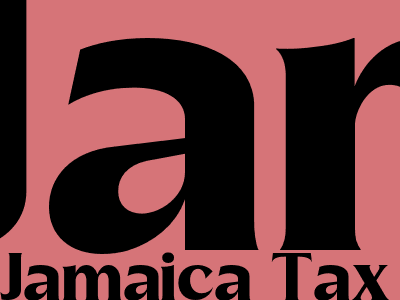
Jamaica Tax - A Deep Dive
What is Jamaica Tax?
Jamaica's tax system is structured to collect taxes from various sources. Such sources include income, profits, property, and consumption. The tax system's primary objective is to generate revenue for the government to fulfill its obligations, such as providing public services and financing national development programs.
Income Tax
Individuals and businesses in Jamaica are subject to income tax on their earnings. The tax rates for individuals range from 25% to 30%, depending on their income level.
Corporate Tax
Companies in Jamaica pay corporate income tax at a rate of 25%. This tax is levied on the profits of companies operating in the country, after deducting allowable expenses.
Property Tax
Property owners in Jamaica are liable to pay property tax. The tax rate is based on the value of the property and is assessed by local authorities.
General Consumption Tax (GCT)
GCT is a value-added tax imposed on most goods and services consumed in Jamaica. The standard GCT rate is 16.5% and is applied to the purchase price of goods and services.
Forms of Tax Administration
The Jamaica Tax Administration (TAJ) is the government agency responsible for administering the tax system. The TAJ is responsible for collecting taxes, providing taxpayer services, and enforcing tax laws.
Taxpayer Registration
Individuals and businesses are required to register with the TAJ for tax purposes. The registration process involves obtaining a Taxpayer Registration Number (TRN), which is used for all tax-related transactions.
Tax Filing and Payment
Taxpayers are required to file their tax returns and make tax payments by the prescribed deadlines. The TAJ offers various channels for tax filing and payment, including online, in-person, and through authorized tax agents.
Audits and Investigations
The TAJ conducts audits and investigations to ensure compliance with tax laws and regulations. Audits can be random or triggered by specific factors, such as inconsistencies in tax returns.
Tax Incentives and Relief
The Jamaican government offers various tax incentives and relief measures to encourage investment, promote economic growth, and support specific sectors.
Tax Holidays
Tax holidays, which provide a period of exemption from income tax, are granted to certain businesses and industries designated as priority areas for development.
Special Economic Zones (SEZs)
SEZs are designated areas within Jamaica that offer a range of tax incentives, including reduced or zero corporate income tax rates, to attract foreign direct investment.
Research and Development Tax Credits
Tax credits are available to businesses that invest in research and development (R&D) activities, encouraging innovation and technological advancement.
Tax Reforms and Modernization
The Jamaican government has implemented several tax reforms and modernization initiatives to improve the efficiency and effectiveness of the tax system.
Tax Administration Jamaica (TAJ)
The establishment of the TAJ in 2011 was a significant step towards modernizing tax administration in Jamaica. The TAJ has introduced various improvements, including enhanced online services and taxpayer outreach programs.
Electronic Filing and Payment
The TAJ has implemented electronic filing and payment systems to make it easier for taxpayers to comply with their tax obligations. These systems allow taxpayers to file their returns and make payments online, reducing the need for paper-based processes.
Taxpayer Education and Outreach
The TAJ conducts regular taxpayer education and outreach programs to improve tax literacy and foster a culture of voluntary compliance.
Challenges and Opportunities for Jamaica's Tax System
Jamaica's tax system faces several challenges, including tax evasion, the informal economy, and the need for revenue diversification.
Tax Evasion
Tax evasion remains a significant challenge for Jamaica, as some individuals and businesses attempt to avoid paying their fair share of taxes. The TAJ is implementing measures to address tax evasion, including increased audits and the use of technology to detect non-compliance.
Informal Economy
The informal economy, which operates outside the formal tax system, poses a challenge to tax collection in Jamaica. The TAJ is working to bring more informal sector activities into the tax net through various initiatives, such as tax amnesty programs.
Revenue Diversification
Jamaica's tax system relies heavily on income tax and GCT, limiting revenue diversification. The government is exploring new sources of revenue, such as environmental taxes and tourism-related taxes, to reduce reliance on traditional tax sources.
Conclusion
Jamaica's tax system is a complex and multifaceted system designed to generate revenue for the government. The system has undergone reforms and modernization efforts over time to improve efficiency and effectiveness. While challenges remain, the Jamaican government is committed to improving the tax system to support economic growth and development.